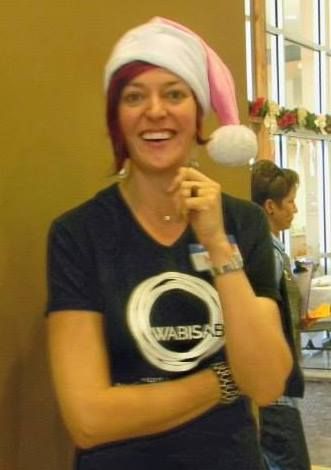Waste stream management is a huge job.
WabiSabi is proud to assist our community daily with this monumental task. Imagine cleaning out the garage for the whole town, day after day. It’s like working in a giant Cracker Jack box. We love our role, but recently, donations have exceeded what we can store and process. To continue fulfilling our mission in amazing Wabi fashion, we’re going to need the community’s help with keeping operations as efficient as possible. Our nonprofit partners need your donations and we are so grateful for every one. Sometimes, we will just need your help with the pacing.
Managing larger amounts of donations is not just an issue for WabiSabi, but is affecting thrift stores regionally and nationally, as well. Thrift stores throughout the region have been calling WabiSabi for the last year to ask if Moab, and WabiSabi in particular, can take their excess donations. Meanwhile, companies who buy damaged thrift store soft goods, sold in bulk by the pound, are less and less interested in coming to Moab to pick up the truckloads from WabiSabi several times a year.
Last month, WabiSabi closed its doors for three days to sort through over 1,000 bags of raw donations that have accumulated over the last year, and create more processed inventory. In January, the stores will close again for two more days to repeat the process. But long-term, WabiSabi is ready to move toward the solution: a larger building for WabiSabi to store and process the goods collected and donated, one about twice the size of existing operations, with more staff and volunteers.
In the meantime, how can the community help?
WabiSabi urges the public to buy used before new. We have created a top ten list of things to never buy new again, which is available at www.wabisabimoab.org and our Facebook page. Shopping in the stores is not only good for the community and nonprofits; it is good for the waste stream.
In addition, WabiSabi asks the community for patience and support if the stores are occasionally closed to do inventory, or if WabiSabi is unable to accept donations that day. WabiSabi is open 362 days a year and generally takes donations from 10 a.m. to 6 p.m. Occasionally, due to high volume and lack of storage space, donation acceptance will halt for 24 to 48 hours until more room can be made to store the incoming donations.
At the beginning of 2015, WabiSabi will introduce another way for residents to assist: by sorting their donations when they drop them off. It will be set up like the recycling center, or other thrift stores in other communities, like Goodwill. We will have a bin for kids’ clothes, and adults’, one for electronics and one for home décor, etc. Not to mention a bin for damaged and soiled clothes. This will take a lot of pressure off our staff, help us to accept and process donations as they continue to come in rapidly, and also, educate the community about what we accept and what we don’t. In response to repeated requests from the community, we will post better standards for what we can sell or reuse and what we can’t.
Volunteering at WabiSabi is another big way to help support the organization as it processes donations. In 2014, WabiSabi enhanced its thriving volunteer program, and every Thursday and Friday, staff and volunteers presort the donations into inventory. We could use much more help. Ten more presort volunteers a week would revolutionize our ability to process the incoming donations.
Finally, WabiSabi asks anyone in the community who has land or funding access to please consider a large or small donation to WabiSabi for the purchase of property or a building to support the large-scale waste stream management that Wabi now provides. Ultimately, WabiSabi must purchase or build this larger facility.
It’s an exciting time for WabiSabi. We are growing, the community gives us so much, and we feel we are on the front lines of some of the most important work of this day and age. Waste stream management isn’t glamorous, but it is meaningful. We have a responsibility to be good stewards of Moab’s excess stuff. Everything our community gives helps us to run our Meals Program, supports our Nonprofit Partners and our Make A Difference grants, provides for our Nonprofit Network trainings, and allows us to give away over $15,000 a year in goods to close to 70 local nonprofits and schools through our thriving Community Donations Program. We give away a lot, sell a lot more, and somehow, only produce three dumpsters a week of waste. We are proud to receive, revalue and redistribute resources for the betterment of our town.
To learn more and get involved, visit www.wabisabimoab.org.



